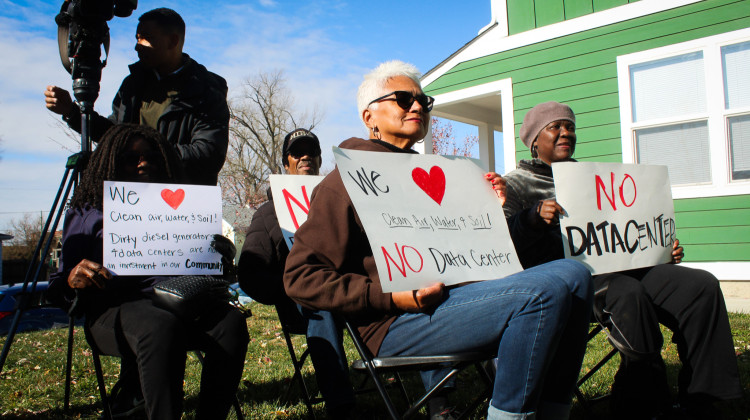A rare respiratory illness that has hospitalized children in neighboring states may be in Indiana.
Hospitals in Missouri, Illinois, Kentucky and Ohio have recently seen a spike in the number patients made ill by enterovirus D68, a germ similar to the common cold that surfaces rarely compared to others.
The Indiana State Department of Health says hospitals statewide are reporting an increase in the number of patients with respiratory illnesses, especially children, but it can’t say, yet, if any of those cases have been caused by the D68 virus.
Officials say the State Laboratory has confirmed that three patients in northern Indiana had some form of enterovirus/rhinovirus, but more testing is needed to determine if the cases are EV-D68, or one of the more than 100 other types of enteroviruses.
The State Health Department is working with local health departments to monitor enterovirus cases. The Centers for Disease Control and Prevention is helping state officials with testing for the EV-D68 strain.
The strain is not new. The CDC says it was first identified in California in 1962. But compared to other enteroviruses, EV-D68 has been rarely reported in the United States during the past 40 years.
So far, four states -- Colorado, Illiniois, Iowa and Missouri -- have had confirmed cases of EV-D68. Eight other states have suspected cases.
The Symptoms
EV-D68 usually causes upper respiratory illness, such as low-grade fever, cough, runny nose, sneezing and body/muscle aches. Infected individuals generally recover on their own without incident by treating symptoms. However, some individuals, especially those with weakened immune systems or underlying medical conditions, such as asthma, may experience severe complications and require hospitalization with supportive therapy.
State health officials are encouraging anyone experiencing cold-like symptoms and trouble breathing to contact their healthcare provider right away.”
How It Spreads
The CDC says EV-D68 is not frequently identified, so it is less studied and the ways it spreads are not as well-understood as other enteroviruses. The virus can be found in respiratory secretions such as saliva, nasal mucus, or sputum. It’s likely that the virus spreads from person to person when an infected person coughs, sneezes, or touches contaminated surfaces.
Prevention
There are no vaccines for preventing EV-D68 infections. The CDC recommends the following steps to help protect yourself from respiratory illnesses:
- Wash hands often with soap and water for 20 seconds, especially after changing diapers
- Avoid touching eyes, nose and mouth with unwashed hands
- Avoid kissing, hugging, and sharing cups or eating utensils with people who are sick
- Disinfect frequently touched surfaces, such as toys and doorknobs, especially if someone is sick
Treatment
There is no specific treatment for EV-D68 infections, and no antiviral medications are currently available for treating of EV-D68 infections. The CDC says many infections will be mild and self-limited, requiring only treatment of the symptoms. Some people with severe respiratory illness caused by EV-D68 may need to be hospitalized and receive intensive supportive therapy.
 DONATE
DONATE









 View More Articles
View More Articles

 Support WFYI. We can't do it without you.
Support WFYI. We can't do it without you.